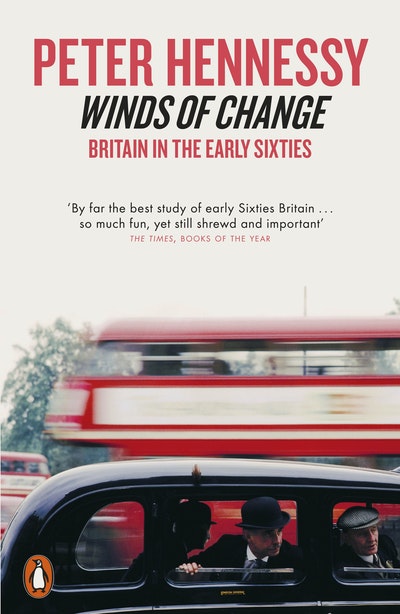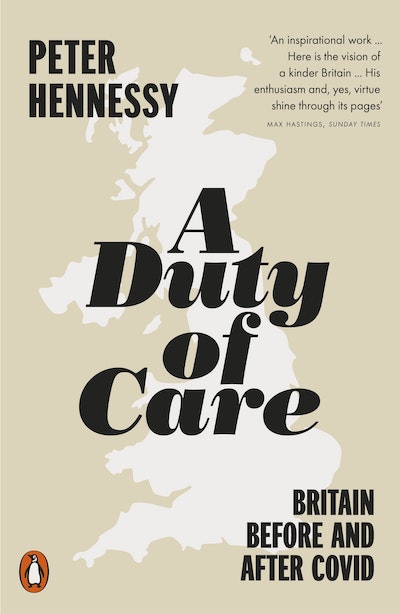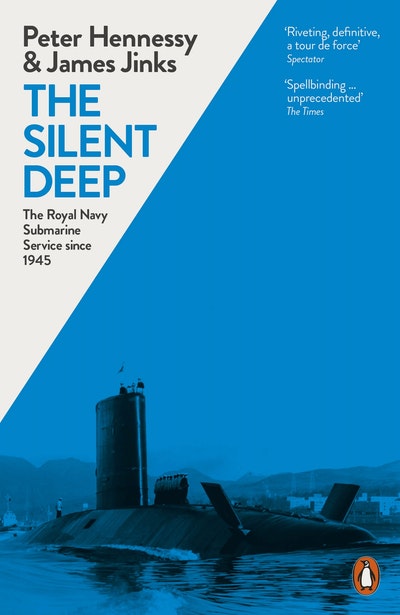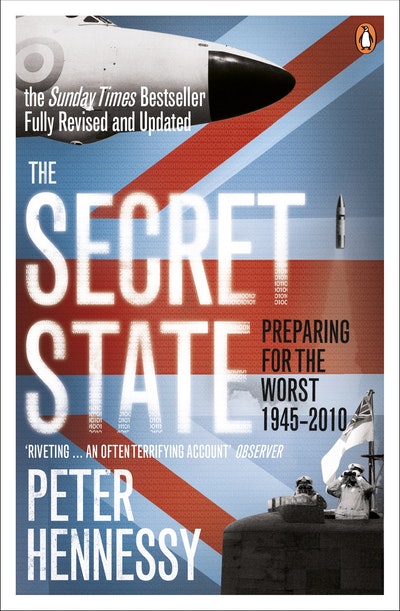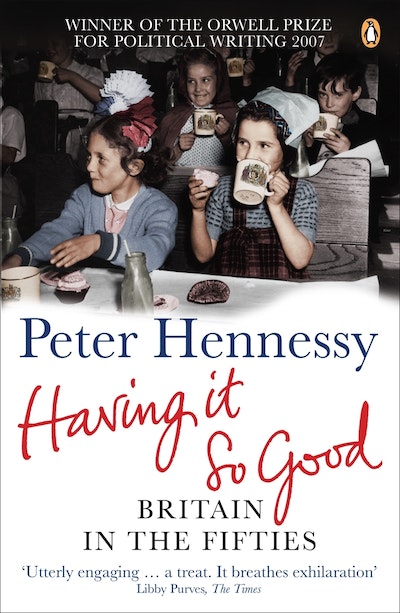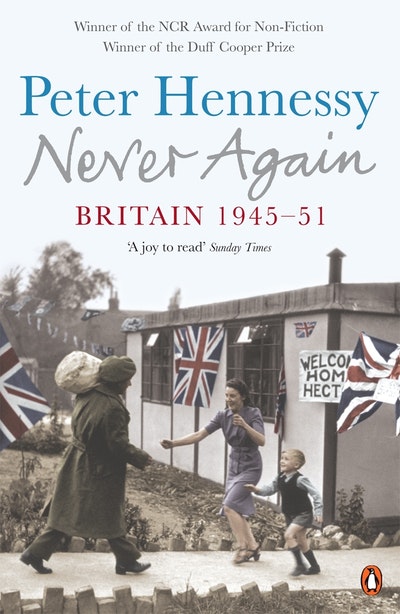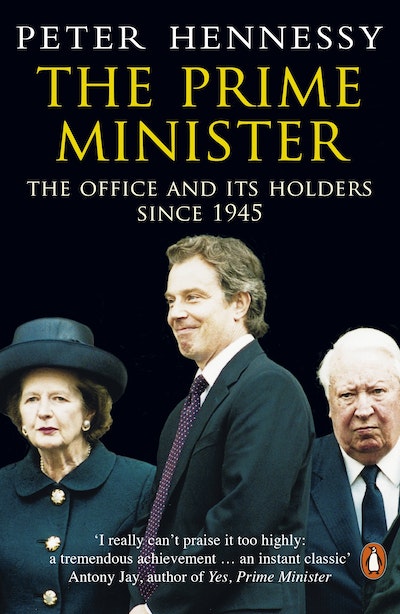Winds of Change
Britain in the Early Sixties
- Published: 28 March 2019
- ISBN: 9781846147241
- Imprint: Penguin eBooks
- Format: EBook
- Pages: 768
Peter Hennessy writes like he talks, which produces a delightfully wandering narrative, peppered with quirky anecdotes, that surreptitiously delivers powerful insights. This is by far the best study of early Sixties Britain; one to please the masses and wow the scholars. ... Hennessy, unique among contemporary historians, understands politics from the inside out. The book is so much fun, yet still shrewd and important
Gerard DeGroot, The Times Books of the Year
Professor Peter Hennessy is a fine historian of late-twentieth-century Britain. He is a master of all the published sources, and his generous personality, academic distinction and unquestioned integrity have meant that he adds to them a lifetime of the confidences and insights of most of those who have actually made our history. ... So, a standing ovation for Peter Hennessy, a good man who writes very good books.
Chris Patten, Tablet
Hennessy is a national treasure. He is driven by a romantic, almost sensual, fascination with British history, culture, and the quirky intricacies of British democracy and the government machine. His curiosity is insatiable, his memory infinitely capacious.
Rodric Braithwaite, Spectator
[G]enially narrated... what makes him such a deft public historian is the way he stitches these patches of rich local colour into a narrative with the widest possible reach. ... Hennessy has such a keen associative eye and such a generous heart for the sheer oddness of everything that the narrative spins along like a comfortable chat.
Kathryn Hughes, Guardian
splendid history of postwar Britain... Hennessy's writing is characterised by a wonderful mixture of wit and erudition.
Piers Brandon, Literary Review
This is the third in Hennessy's wonderfully insightful series of books that make up a portrait of a nation coming to terms with victory in a ravaging war and the loss of empire. Like the others - Never Again and Having It So Good - it performs a singular balancing act between social history and cabinet-room politics. No current historian is as versed as Hennessy in the internal cogs and springs of the British state, but he also has a keen eye for the luminous face of passing time.
Tim Adams, Observer
a masterful survey of Britain as the decade began ... For those who know him only from the radio, Hennessy is as good a writer as he is a talker. ... I am afraid that he is now a treasure.
David Aaronovitch, The Times
a deeply-informed book that has, nearly 60 years later, powerful resonance. The foremost chronicler of the era, Hennessy combines the intricate detail with stylistic verve.
Philip Stephens, Financial Times
flavoursome, but authoritative, account ... This history is none the worse - quite the opposite - for being such a personal one; but it is the intense erudition underpinning Hennessy's intimate reflections that makes it so utterly indispensable.
Simon Heffer, Daily Telegraph
fascinating ... dominated by the author's personal enthusiasms, researches and memories
Max Hastings, Sunday Times
